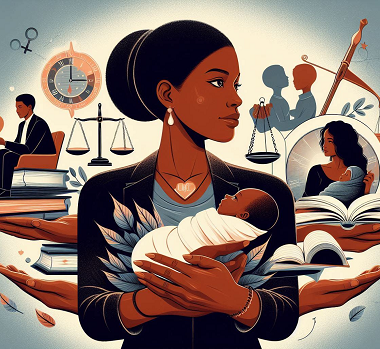Marriage and family—the very fabric of human existence—find their legal underpinning in the intricate field of marriage and family law. Whether you’re a newlywed, contemplating marriage, or facing familial challenges, understanding the legal landscape is crucial. In this comprehensive guide, we’ll explore the multifaceted aspects of marriage and family law, its impact on individuals and communities, and the evolving rights and responsibilities within families. From wedding vows to divorce decrees, let’s unravel the legal tapestry that binds us together.
The Essence of Marriage and Family Law
1. Marriage: A Legal Union
Marriage is more than a romantic declaration; it’s a legal contract. Here are key aspects of marriage law:
- Marriage Age and Consent: Each state sets its minimum marriage age. Generally, individuals can marry at 18 without parental consent. Exceptions exist in Nebraska (age 19) and Mississippi (age 21). Consent is crucial, especially for minors.
- Rights and Responsibilities: Marriage grants both spouses new legal rights and obligations. These include property ownership, inheritance, and decision-making authority.
2. Divorce: Untying the Knot
When marital bonds fray, divorce laws come into play. Here’s what you need to know:
- Grounds for Divorce: Different states recognize various grounds for divorce, such as irreconcilable differences, adultery, cruelty, or abandonment.
- Property Division: Matrimonial law addresses the fair distribution of marital property. Community property states divide assets equally, while equitable distribution states consider factors like contributions and needs.
- Child Custody and Support: Courts determine child custody based on the child’s best interests. Child support ensures financial stability for the child.
3. Child Custody and Guardianship
Child custody decisions are emotionally charged and legally significant:
- Types of Custody: Courts grant legal and physical custody. Legal custody involves decision-making authority, while physical custody determines where the child lives.
- Joint Custody: Shared custody arrangements aim to maintain both parents’ involvement in the child’s life.
- Guardianship Laws: These laws define the rights and responsibilities of legal guardians over minors. Guardians make decisions related to education, healthcare, and general welfare.
The Human Side of Marriage and Family Law
- Emotional Turbulence: Legal proceedings evoke deep emotions—love, anger, grief. Matrimonial attorneys must navigate these feelings while advocating for their clients.
- Mediation and Counseling: Alternative dispute resolution methods, such as mediation and counseling, help couples find common ground. These approaches prioritize collaboration over confrontation.
- Gender Equality: Modern matrimonial law strives for gender equality. It challenges traditional norms and empowers women, recognizing their rights as equal partners.
Conclusion: Love, Law, and Lifelong Commitment
Matrimonial law isn’t just about legal statutes; it’s about hearts intertwining. As couples pledge their love, they also embrace their legal responsibilities. Whether it’s “I do” or “I don’t,” matrimonial law shapes lives.
The intricate tapestry of marriage and family law: Where love meets legal obligations
From the whispered vows of “I do” to the complexities of divorce proceedings, marriage and family law weaves itself into the very fabric of our lives. It’s a legal framework that underpins the foundation of families, shaping not just romantic unions but also the rights and responsibilities of parents and children. Whether you’re embarking on a new chapter with a loved one, navigating the challenges of parenthood, or facing the complexities of separation, understanding this intricate legal landscape is crucial.
The Cornerstones of Marriage Law: A Contract Beyond Romance
Marriage is more than a heartfelt declaration; it’s a legally binding contract with specific requirements and consequences. Let’s delve into some key aspects:
- Age and Consent:
Every state has a minimum marriage age, typically 18 with parental consent. Exceptions exist, with Nebraska requiring 19 and Mississippi demanding 21. However, in all cases, genuine consent is paramount, especially for minors entering into marriage. - Rights and Responsibilities:
Marriage grants spouses a unique set of legal rights and obligations. These encompass property ownership, inheritance rights, and decision-making authority within the marital unit. Understanding these interwoven rights is essential for couples as they build a life together.
When Love Fades: The Untangling of Marriage Through Divorce
Unfortunately, not all marriages last a lifetime. When love wanes, and couples decide to part ways, divorce law offers a legal pathway to dissolve the union. Here’s what you need to know:
- Grounds for Divorce:
The legal basis for divorce varies by state. Some states recognize “irreconcilable differences” as sufficient cause, while others require specific grounds like adultery, cruelty, or abandonment. Understanding the grounds for divorce in your state is crucial for initiating the legal process. - Property Division: A Fair Distribution
Matrimonial law addresses the equitable distribution of marital property accumulated during the marriage. This can include assets like houses, cars, bank accounts, and investments. Community property states divide these assets equally, while equitable distribution states consider factors like each spouse’s contributions and current needs. - Child Custody and Support: Prioritizing the Child’s Well-Being
In situations involving children, courts prioritize their best interests when determining child custody. - Legal Custody: This refers to the authority to make major decisions regarding a child’s upbringing, such as education and healthcare.
- Physical Custody: This determines where the child primarily resides.
Joint custody arrangements, where both parents share physical and legal custody, are becoming increasingly common. Additionally, child support ensures financial stability for the child’s care.
Beyond the Legal: The Human Face of Marriage and Family Law
The legal proceedings surrounding marriage and family can be emotionally charged, stirring up a complex cocktail of emotions – love, anger, and grief. Matrimonial lawyers are not just legal eagles but also empathetic navigators who advocate for their clients amidst this emotional turbulence.
Alternative Dispute Resolution: Finding Common Ground
Fortunately, navigating the legal complexities of marriage and family doesn’t always involve courtroom battles. Alternative dispute resolution methods, like mediation and counseling, offer a more collaborative approach. Mediation helps couples work together to find solutions that benefit everyone involved, especially children. Similarly, counseling can provide a safe space for couples to communicate and potentially reconcile, if desired.
Gender Equality: A Lawful Evolution
Modern family law strives for gender equality within marriages and families. It challenges traditional norms that may have disadvantaged one spouse, particularly women. Today’s matrimonial laws empower women, recognizing their equal rights and responsibilities as partners.






